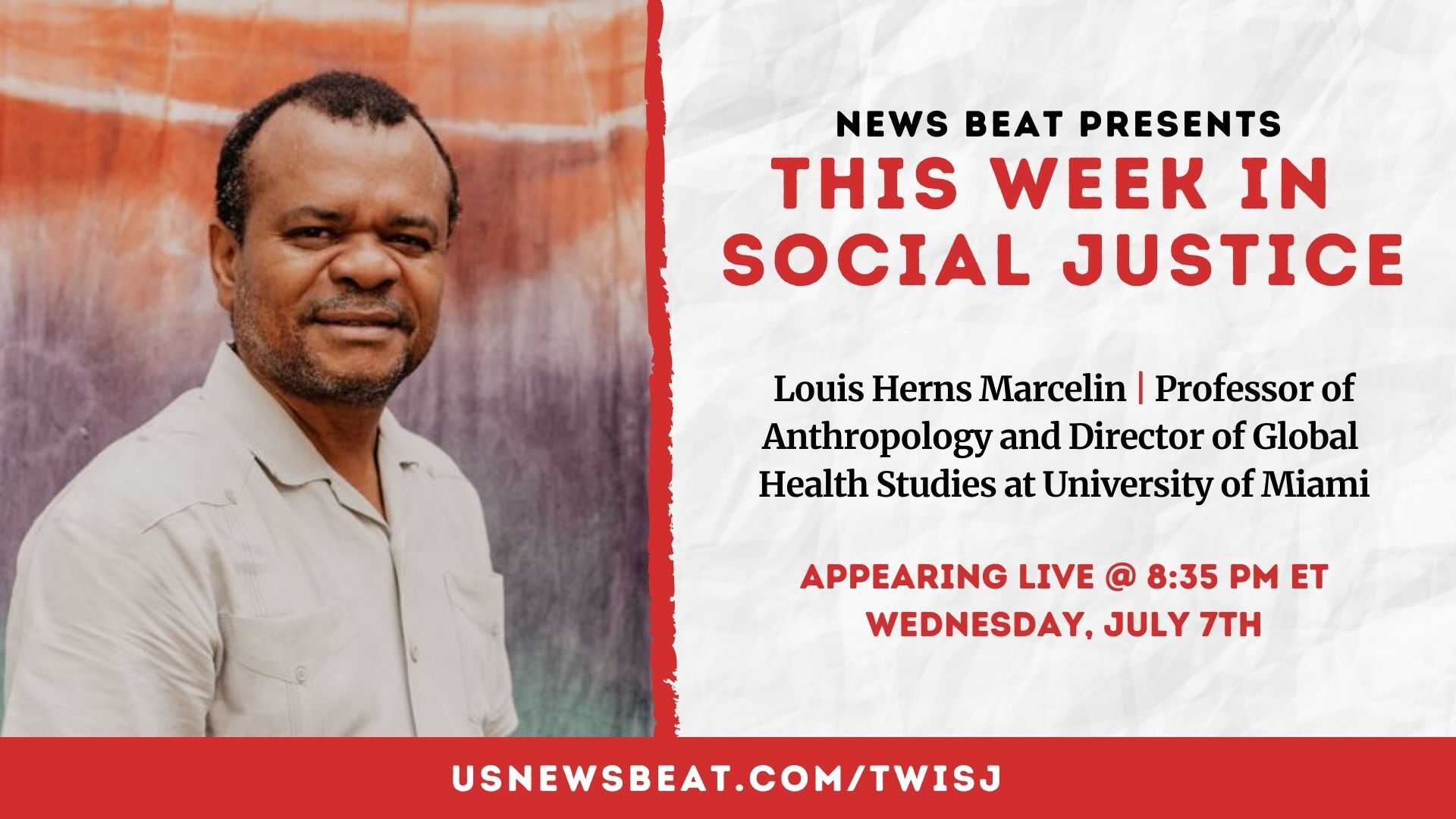New York this week became the 15th state in the nation to legalize recreational marijuana, dealing a significant blow to the racist and shameful War on Drugs, a decades-long crusade whose origins go back longer than conventional wisdom suggests.
The Marijuana Regulation and Taxation Act, signed into law by Gov. Andrew Cuomo on March 31, permits public use and possession and the future sale of cannabis through a highly regulated market, which will eventually include consumption sites.
Reform advocates are enthusiastic about racial justice elements of the law, including the expungement of past criminal convictions and an end to most cannabis-related arrests.
Black and Brown people have historically been disproportionately affected by the drug war even though research shows that their marijuana use is similar to whites. An analysis by the Legal Aid Society found that 93 percent of those arrested in New York City for marijuana in 2020 were Black or Hispanic, underscoring the unequal enforcement of drug laws.
Related: The War on Drugs began much earlier than you think. Check out this important podcast episode.
In an acknowledgment of the harm caused by the racist drug war, the law pledges to allocate 40 percent of tax revenue to harmed communities, a provision that advocates had fought for years to have included in any legalization legislation.
To get a better understanding of what the law does and how it will impact those at the center of the destructive drug war, we spoke to Alice Fontier, managing director of the Neighborhood Defenders Service of Harlem.
In her interview on This Week In Social Justice, a live streaming show presented by News Beat podcast, Fontier said the law “is a sea change for literally hundreds of thousands of New Yorkers.”
Here’s our full interview with Fontier, including a transcript that has been edited for clarity. You can stream This Week In Social Justice or listen to it on your favorite podcast app. You can catch This Week In Social Justice every Wednesday at 8 p.m. ET.
Racial Justice Impact of New York Marijuana Legalization
News Beat: Black and Brown communities have been disproportionately impacted by the War On Drugs. What will happen to all the people who've faced criminal charges during marijuana prohibition?
Alice Fontier: "From 1996 until now, for just misdemeanor marijuana possession, over 800,000 New Yorkers have been prosecuted and convicted. So it is an enormous number that we're talking about. And as you mentioned, the vast, vast majority of those people are Black and Latinx folks. So there is a huge population of people that have been impacted by the over-policing of marijuana prohibition. And what happens is now by virtue of this law, effective today, the records of people who are currently serving sentences are to be automatically reviewed, vacated, expunged if they are not a crime at all now, or reduced to whatever the crime might be now under the current penal code.
For people that are not currently serving a sentence—so prior convictions—they have to file a petition, but it is automatic, there's not something that will deny them. I think it's really just about the resources so that a million cases didn't fall onto the courts lap to have to deal with tomorrow. The petitions will have to get filed, and then it will be handled as the petitions come in. But those convictions are getting vacated and expunged, which will make a huge difference to people in terms of ability to get housing, school loans, jobs, keep their families together, immigration consequences, you name it—this law is a sea change for literally hundreds of thousands of New Yorkers."
NB: Forty-percent of funds generated by tax revenue will go to communities disproportionately impacted by the ongoing drug war. What is the significance of this?
AF: "The significance is is monumental. It's huge. This particular legislation, the Marijuana Regulation and Taxation Act, in almost the exact form which actually got passed this year, has been introduced into the legislature a few years running and had the votes to pass in both the Assembly and the [Senate] last year, the year before but there was the fight with Governor Cuomo about where the money would go. And if you compare what actually got passed and signed today to what Governor Cuomo put into his budget again this year, the big difference—there's some penal law differences too—but the big difference is where the money goes. And it is no small amount of money.
The estimates right now are that when this industry is up and fully running in New York State, the entire industry will be about a $4.2 billion annual industry, and the taxation to just the state, never mind cities and other municipalities, will be about $350 million a year. So it's a lot of money that we're talking about and the governor wanted all of that originally to go into a general fund that he effectively controlled. Thanks to the bill sponsors and others in the Assembly and in the senate—Senator [Liz] Krueger and in the Assembly, Assemblymember Crystal Peoples-Stokes—they held tight and said 'no, this money needs to go to the people who have been directly impacted, we need to reinvest into the communities that have been so unbelievably harmed over the last 100 years of prohibition and can't change this and not specifically help those communities' and that's what this bill does."
NB: How do you quantify the damage that's been done?
AF: "I don't think you can. For the people who have been deported because of these offenses, they're not coming back here, they're not going to be with their families again. For the people who spent years in jails, for people who have been denied access to education because they couldn't get loans, denied housing, there's no amount of money that fixes that for families that have been separated. I'm not being hyperbolic when I say families are separated. Marijuana has been used by children's services and family court judges to keep children and parents apart for decades and decades and that has to end. The statute specifically says that cannot happen, marijuana use will not be a reason to separate kids from their parents. Those things can never be repaired and you can't fix a community that has been taken apart literally by deportation, arrest, whatever other forms that the legal system takes to impact people. So you can't fix that, but you also don't need to make it worse. What we have seen in other states that don't have similar provisions is that there are large companies and sort of conglomerates that know how to navigate the sort of regulatory system to get into the market first and reap all the profit without having any beneficial impact on the communities that they're in. And the aim of this legislation is to prevent that from happening."
NB: What does legalizing marijuana mean in the context of the War on Drugs?
AF: "The simple overview of marijuana prohibition is that it really was about 100 years ago when they started prohibiting it in various places basically because they believed that Mexican immigrants were smoking. And before that it was also was called cannabis. Marijuana is actually a bit of a derogatory term, it made it sound more Latin, and tied it to Mexican and other Central American immigrants that were to be held down, not part of the white supremacist order, quite frankly. And you know, that history of tying drugs of any kind to a class or group of people, and then in by that saying they're also criminals—that is the War on Drugs. You started out by saying that, you know, the arrests for marijuana of Black and Brown people are 90-plus percent, but the usage for Black and white folk and Black, Latin and white is all similar. There's no difference in usage, there's only differences in arrest and prosecution. But if you can tie a drug to a race to crime, and link those together, the War on Drugs then becomes a war on crime or against disorder and maintaining safety and the order that the police and system is interested in maintaining."
NB: What will organizations like yours do to ensure public consumption still won't be criminalized?
AF: "It feels small but in terms of the impact, one of the things that we advocated strongly for that is included in this bill that is not in a lot of the legalization bills, it relates to the smell of marijuana. So it specifically says in this legislation, that the smell of marijuana is not reasonable suspicion, it's not probable cause; if you smell marijuana, it is not a reason to stop somebody, search them, question them. And that's incredibly important because, you know, particularly with the proliferation of body cams, the smell of marijuana, it has been in countless complaints, as the reason that the police approached, questioned, stopped somebody—they can't do that anymore. It specifically says 'no.' My organization, and all of the other defenders in the state, will be making sure that that's not something that they're doing, that it's not in a complaint. And if it is, we will gather that information, we will challenge it in individual cases, we will challenge it in large scale litigation if we have to. That was something that we thought really deeply about when advocating for this bill."
NB: How many fewer arrests are estimated as a result of this legislation?
AF: "Its tens of thousands of people across the state. And that's if you pull the data on just marijuana. But marijuana used as an excuse to search, I think the numbers are going to be really, incredibly large. This is a sea change. This is a really important, huge bill that got passed and it took years and years of a lot of advocates on the ground working to make this happen, voices of impacted people being raised over and over."
Watch the full stream
Listen to the full stream



.jpg)





